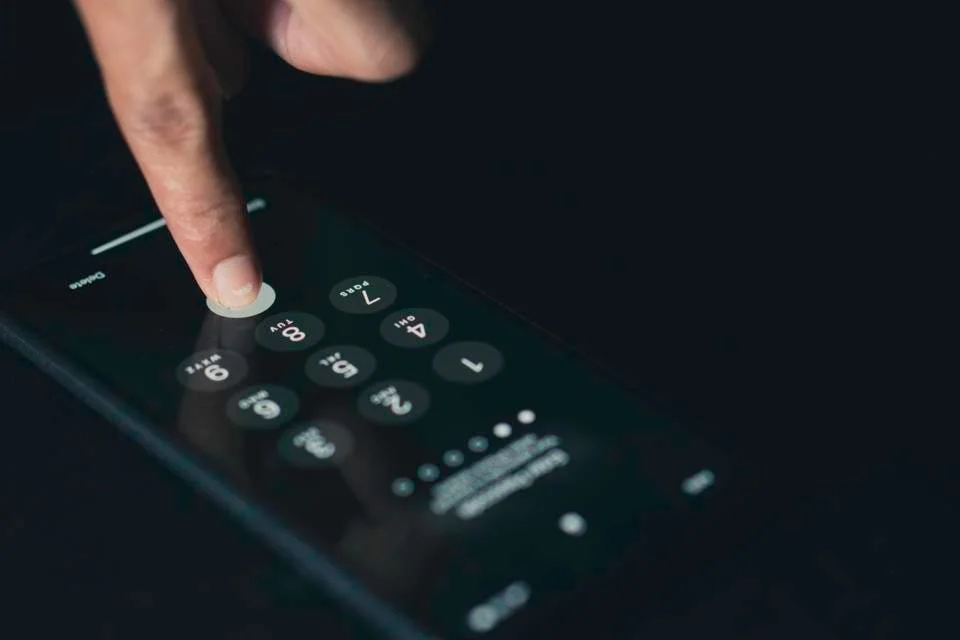
Is Your PIN Code a Hacker’s Dream? Experts Warn Against These Common Combinations
Are you putting your digital security at risk with an easy-to-guess PIN? Tech experts are sounding the alarm about the rising popularity of supposedly 'secure' PIN codes, warning that they've become prime targets for hackers. What was once considered a safe strategy might now be your biggest vulnerability.
The Danger of Popularity: Davey Winder, an IT pro, highlights the core issue: once a PIN code gains online recognition, its security plummets. The previously touted 'safest PIN,' 8068, is now a prime example of this phenomenon. According to Winder, "As soon as 8068 was named online, it became anything but safe. As soon as you could Google what's the safest PIN code and get 8068 returned, it became a very weak number instead." The same applies to other frequently suggested PINs like 6835, 7637, 8093, and 9629.
The Math Behind the Risk: While a four-digit PIN theoretically requires 10,000 attempts to crack, Winder emphasizes the ease with which hackers can automate this process. He urges users to abandon predictable choices like birthdays, anniversaries, and recognizable patterns. A move to six or more digits is highly recommended for enhanced protection.

The Shocking Truth: A study involving over 29 million participants revealed a startling statistic: one in ten people use a four-digit PIN code found on data breach lists. Common choices like '1234,' '1111,' '0000,' and '1342' remain alarmingly prevalent, with '1234' topping the list as the choice of nearly one in ten million participants.
Beyond PINs: Password Pitfalls: Winder cautions that passwords are just as susceptible to cracking. Avoid easily typed or recalled passwords, as these are inherently easier to guess. He lists some of the worst offenders, including '000000,' '1234567,' 'charlie,' and 'iloveyou.'
The PIN Code's Origin Story: The Personal Identification Number (PIN) is largely credited to James Goodfellow, the inventor behind the Automated Teller Machine (ATM). However, the security aspect gained momentum in 1972 with Mohamed M. Atalla's PIN verification system. For this reason, Atalla is often referred to as the father of the PIN.
Boosting Your Security: One of the quickest ways to keep your phone secure is to ditch the four-digit PIN in favor of a six or ten-digit alternative.
Never Use These PINs and Passwords:
- 0000, 1010, 1111, 1122, 1212, 1234, 1313, 1342, 1973, 1974, 1975, 1976, 1977, 1978, 1979, 1980, 1981, 1982, 1983, 1984, 1985, 1986, 1987, 1988, 1989, 1990, 1991, 1992, 1993, 1994, 1995, 1996, 1998, 2000, 2002, 2004, 2005, 2020, 2222, 2468, 2580, 3333, 4321, 4444, 5555, 6666, 6969, 7777, 8888, 9999
- 000000, 111111, 11111111, 121212, 123123, 12345, 123456, 1234567, 12345678, 123456789, 1234567890, 555666, aaron431, abc123, abcd1234, ABCDEF, admin, charlie, dragon, iloveyou, lemonfish, liverpool, monkey, password, password1, qwerty, qwerty1, qwerty123, secret, tangkai, user0123, welcome, woaini
The Bottom Line: Your digital security hinges on the strength of your PIN and passwords. Is it time to rethink your strategy? What steps are you taking to safeguard your personal information? Share your thoughts and security tips in the comments below!